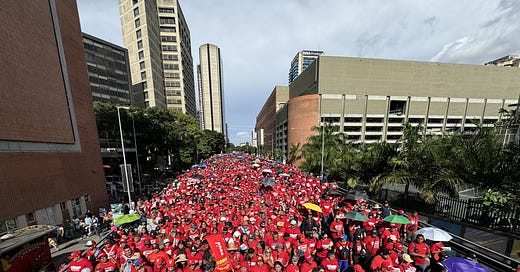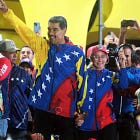The US attempted coup against Venezuela
Contained with political intelligence by the Maduro government
Following the presidential elections in Venezuela of July 28, 2024, certified as free and fair by international observers, the United States of America continues to not recognize the re-election of President Nicolás Maduro. The Venezuelan president has accused the United States of attempting to organize a coup d’état, and in this charge, he is backed by many leaders and intellectuals of the Global South and East. Venezuela, since the election of Hugo Chávez in 1998, has played a leading role in forging Latin American and Caribbean unity and integration, in opposition to the imperialist divide and conquer tactics of the USA, which finds particularly damaging to its interests the Chavista implementation of the principle of the right of the Venezuelan state to control the production and distribution of Venezuela’s significant oil reserves.
During the August 6, 2024, Cuban television program Mesa Redonda, Elio Perera, a researcher affiliated with the Cuban Center for Research o…



